Xuan Dai Bay of Song Cau Town (Phu Yen) is famous for many types of seafood such as crabs, oysters, clams... especially lobsters. Lobster farming here is strongly developed, so this land is known as the lobster capital. However, not everyone in Song Cau Town becomes a billionaire, but many people make a living by raking clams in Xuan Dai Bay when the tide is low.
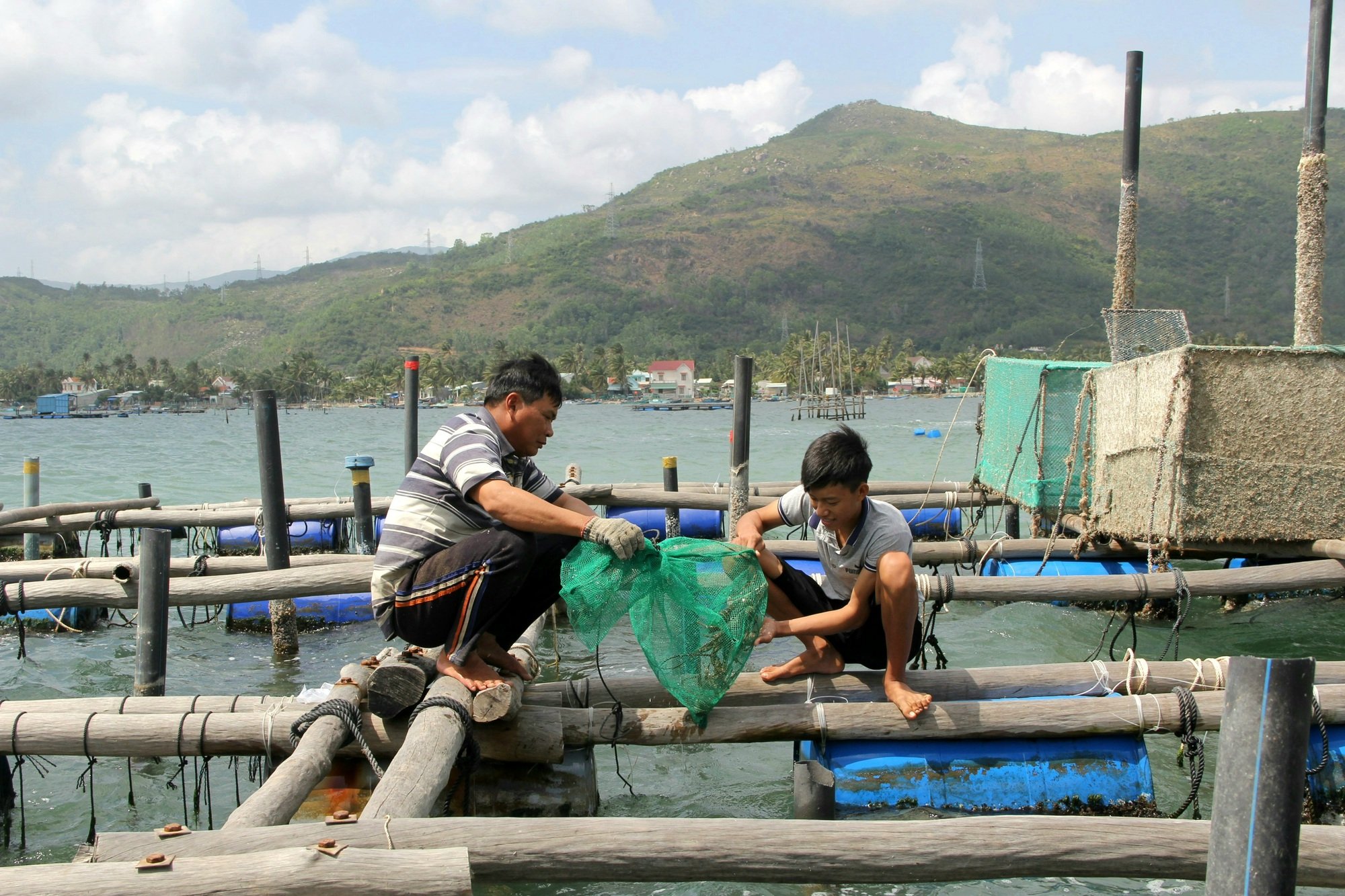
A corner of Xuan Dai Bay
Waiting for the water to dry up
Xuan Dai Bay is vast during high tide, and when the tide is low, it reveals hundreds of meters of mud and sand along the shore of the bay. Along the road connecting Xuan Phuong commune, Song Cau town, there is a bay area of about 1 hectare. There, hundreds of people, mostly women, sit in rows, raking clams.
Their tools are quite simple, including a rake, a small trowel or hoe, a plastic bucket, and a basket to hold the clams they catch. More professional people use large rakes with long handles and styrofoam boxes to catch clams in deep water areas.
People who rake clams are usually women because in addition to housework, they take advantage of their free time, when the tide is low, to rake clams to earn extra income. Usually, their work starts from early morning to noon, or from early afternoon to evening, depending on the time of the high and low tides during the month.
Near noon, Nguyen Thi Kim Thoa (47 years old, in Xuan Phuong commune) and her daughter were still holding a trowel, scraping the sand to find clams. Clam raking is the main source of income for her family because of their difficult circumstances. Thoa's husband is over 50 years old this year, has suffered from asthma for many years, so he cannot go to sea or do heavy work. Her family has 4 children, the 2 older daughters are married, and life is not very comfortable. Her two younger children are still in school age, so the whole burden of making a living falls on her shoulders.
Every day, in addition to working for hire, Mrs. Thoa always waits for the water to dry up so she can go to the pond to rake clams. Despite the cold weather, Mrs. Thoa diligently rakes clams every day. She is usually the one who persistently goes to work early and comes home late to earn a little extra money to take care of her husband and children.
"Most fishermen living in the Song Cau sea area, if they don't buy fishing boats, invest in lobster farming. As for me, my family's circumstances are difficult, so I don't have the capital to invest. Furthermore, my husband is sick, so his health is not suitable for such work. Therefore, my family's life depends on raking clams and working for others," Ms. Thoa confided.
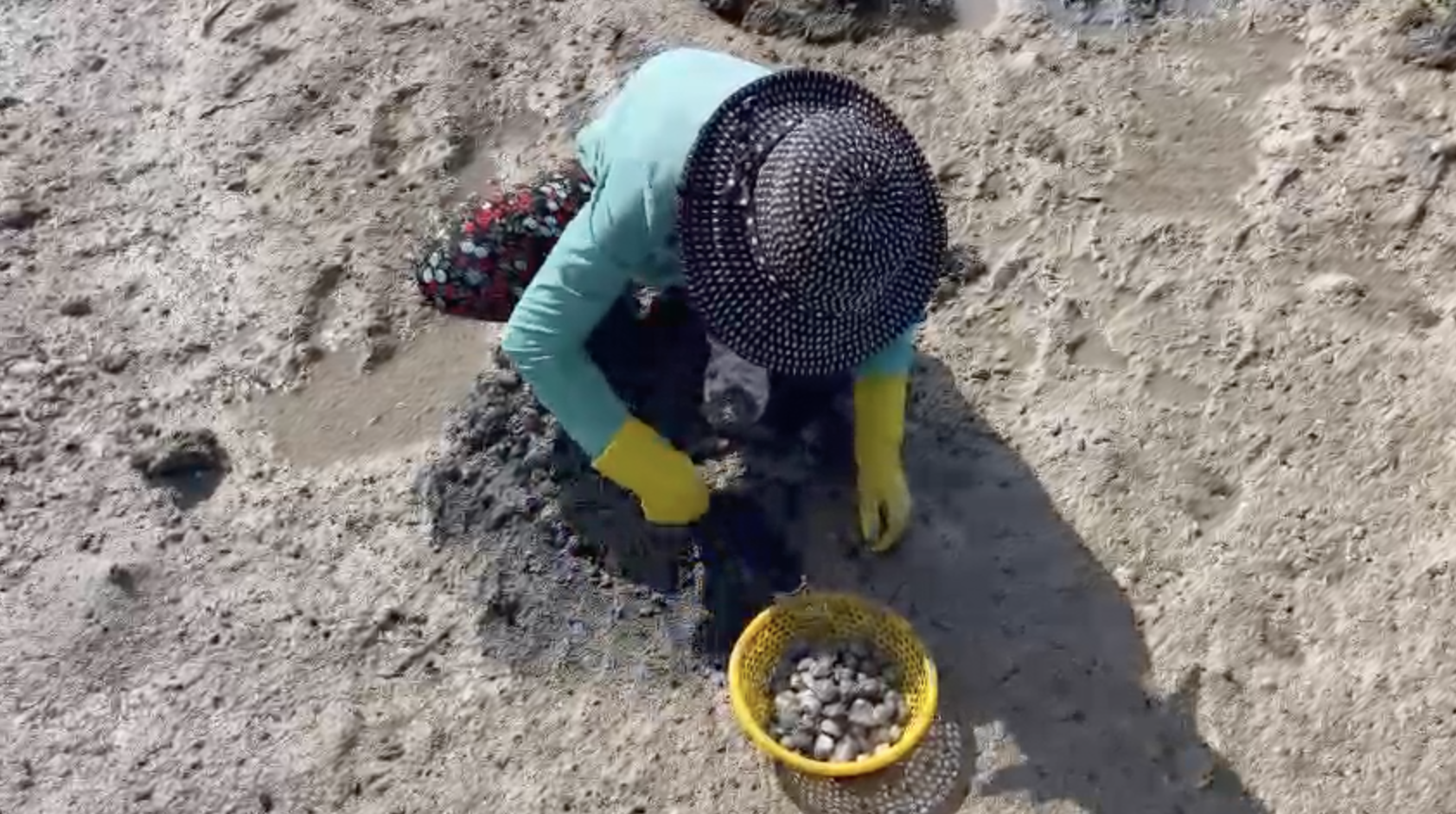
Clams are expensive because they are a specialty dish.
FROM FAMILY FOOD TO SPECIALTY
Clams have a shape similar to clams and live in abundance on the mudflats around Cu Mong lagoon and Xuan Dai bay.
(Song Cau Town). The season of the north wind is also the time when the clams are firmest and sweetest, so people focus on exploiting this specialty. When the tide is low, the lagoon surface dries up, revealing large mud flats, which are home to many types of coastal seafood, including clams. At this time, some people go raking clams, others catch snails.
Clams usually live right on the mud surface, so you only need to lightly scratch the mud layer about 10cm to find them. Young people with more hands go to deep water areas to scratch for bigger clams and get more. Women and the elderly can usually only scratch in shallow water areas, so the clams are also smaller and less numerous.
Experienced people usually choose a place with few people, observe the mud surface to find clam holes to catch the whole nest. If you dig the right big hole, you will catch a lot of clams. Most people here just dig randomly, raking wherever they find them. "There are times when you find a hole with a lot of clams, and you can't get enough of them. But there are also times when you dig forever and only find a few tiny clams, and you can't even get enough for a day's work," said Ms. Thoa.
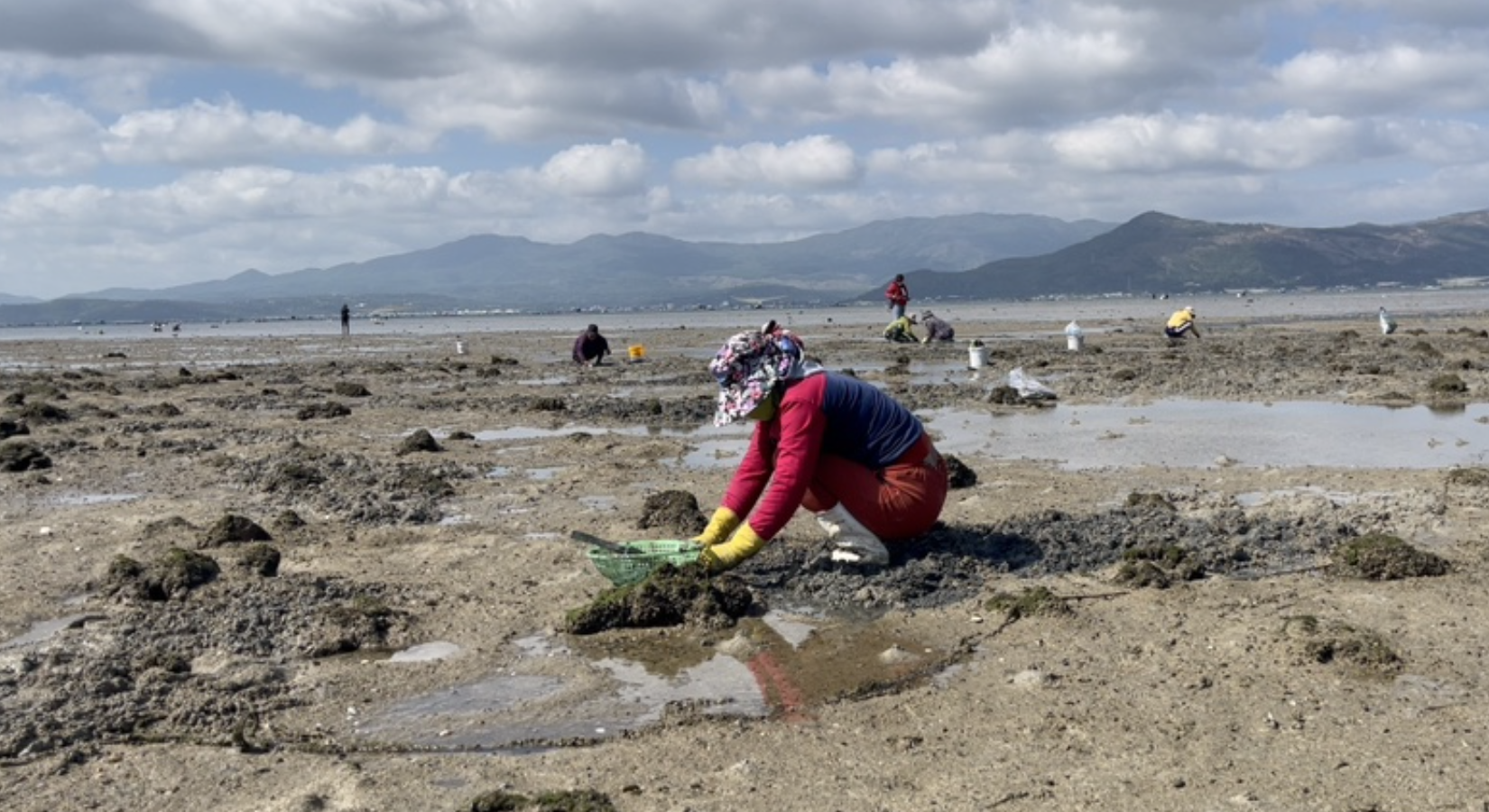
People exploit clams by scraping the mud on the surface.
According to people living near Xuan Dai Bay, in the past they only raked open clams to serve family meals, or when guests came to visit, they would add a clam dish to enrich the meal. But since open clams became a specialty, many traders have come to buy them to supply to restaurants.
"Now that clams have become a specialty dish of Song Cau, people are taking advantage of raking clams to sell for extra income. After one morning, my mother and I raked about 15 - 20 kg of clams. With the price of 15,000 VND/kg, each day we earn about 200,000 - 300,000 VND," said Ms. Bay Dong (in Phu My village, Xuan Phuong commune), a clam raker.
According to Ms. Bay Dong, after being harvested, the clams are purchased by traders at the spot, the price depends on the amount of clams at that time. Ms. Bay Dong shared: "Previously, clam raking was mainly done by women, children or the elderly, because this job was not too hard. Recently, because the sea is hungry, many young people have also taken the opportunity to rake clams to earn extra income."
Traders buy it at a price of around 15,000 VND/kg, but when selling it to restaurant owners, it is often double: 30,000 VND/kg. If processed into a specialty dish, it is up to
60,000 - 80,000 VND/kg. "After buying, wash off the mud on the outside and soak the clams to release the mud inside before processing. This type of clam is very delicious so tourists love it. Moreover, the price is also reasonable so tourists often choose this dish when coming to the restaurant," said a seafood restaurant owner in Song Cau town.
Mr. Nguyen Quoc Vu (in Trung Trinh village, Xuan Phuong commune) said that when the sea is full of fish, almost only women and children go raking for clams, while young people and men go to sea or fish around Cu Mong lagoon and Xuan Dai bay to make a living. "This year the sea is hungry, there are very few fish in the lagoon, so I took advantage of my free time to rake some clams to sell. From morning until now, there have been too many people raking, so I have only been able to rake about 2 baskets of clams, selling just enough money for my wife to go to the market for the day," Mr. Vu confided.
K TWO WATERFALLS BUT CONSERVATION
The lagoons in Song Cau town are very diverse in aquatic products, especially in this area famous for crabs, clams, and snails because they are very delicious. This water resource also helps people earn their living every day. Therefore, although clams are a specialty dish for tourists, when people here dig clams, they are always aware of only exploiting large clams, leaving small clams to develop and reproduce, regenerating the seed source.
The people's awareness of preserving this type of clam comes from the local government and functional agencies of Song Cau town's efforts to promote the fishing of coastal aquatic products.
Mr. Phan Tran Van Huy, Chairman of Song Cau Town People's Committee, said: "We regularly propagate to people about environmental protection, aquatic resources protection, avoiding destructive fishing, and overexploitation of aquatic products in Cu Mong lagoon and Xuan Dai bay. Thereby, along with people's awareness of preserving aquatic resources is also protecting their livelihood, so in recent years, aquatic products in Cu Mong lagoon and Xuan Dai bay have developed strongly again, typically crabs, snails, clams, etc. Currently, in addition to lobsters, these aquatic products have become specialties of Song Cau town, contributing to helping many people living around the lagoon have jobs to earn a living."
Source link


![[Photo] Military doctors in the epicenter of Myanmar](https://vstatic.vietnam.vn/vietnam/resource/IMAGE/2025/4/6/fccc76d89b12455c86e813ae7564a0af)




![[Photo] Prime Minister Pham Minh Chinh chairs the regular Government meeting in March](https://vstatic.vietnam.vn/vietnam/resource/IMAGE/2025/4/6/8393ea0517b54f6791237802fe46343b)
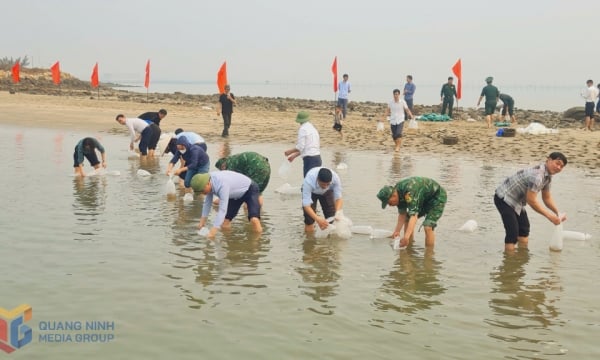



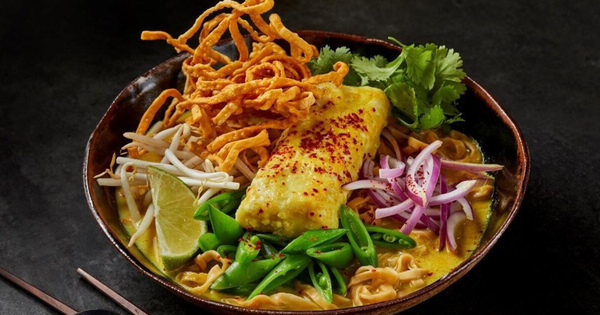
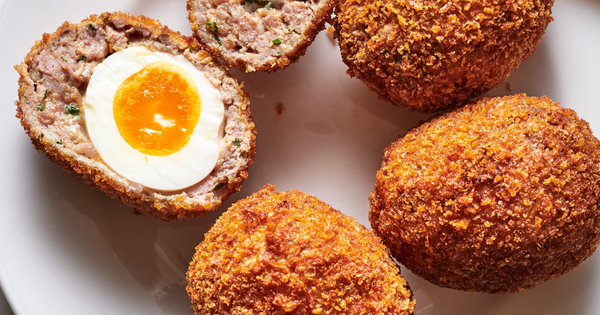
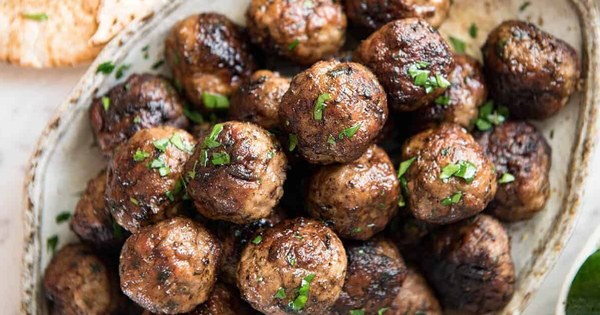






















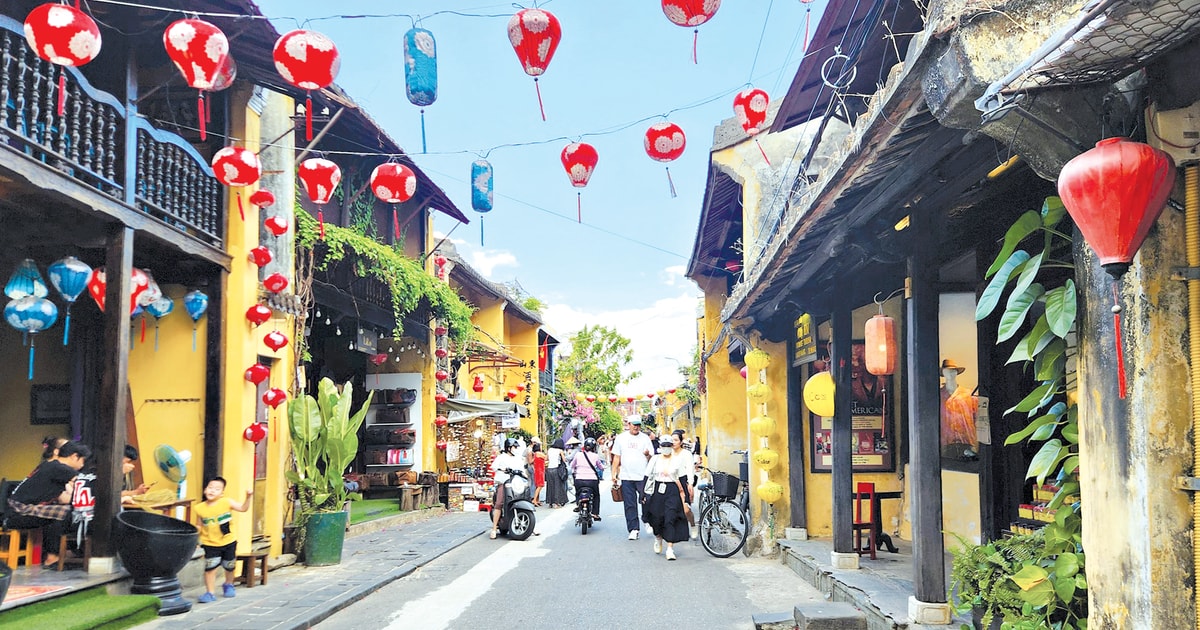













































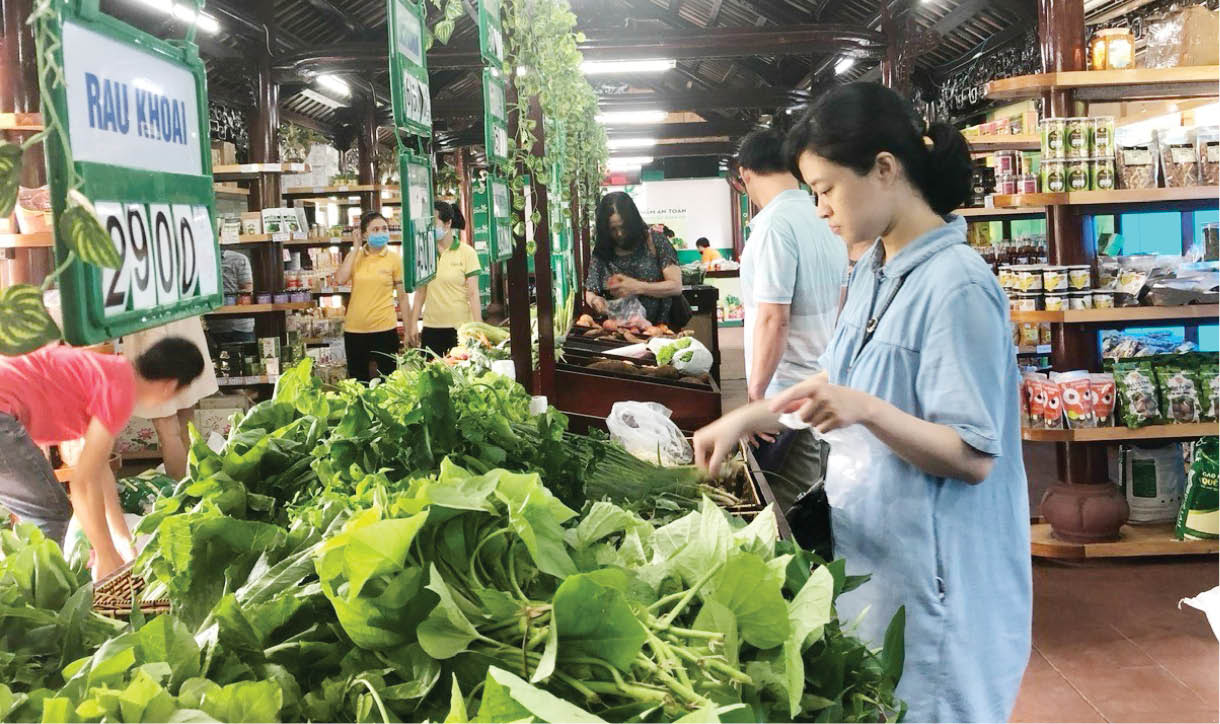

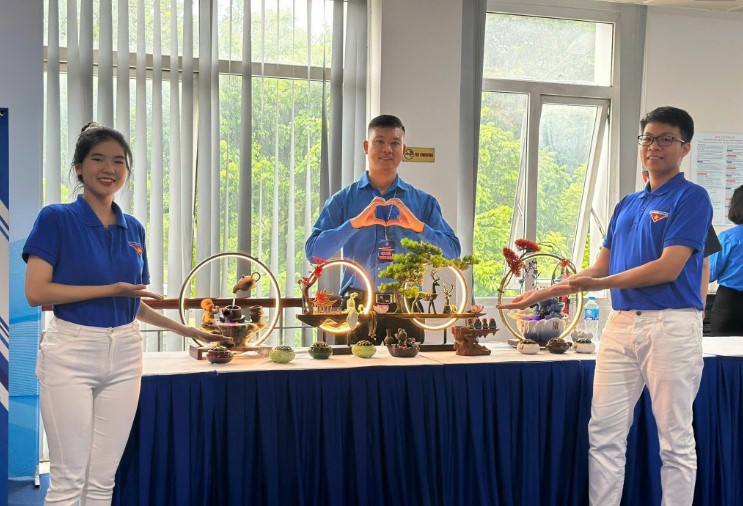
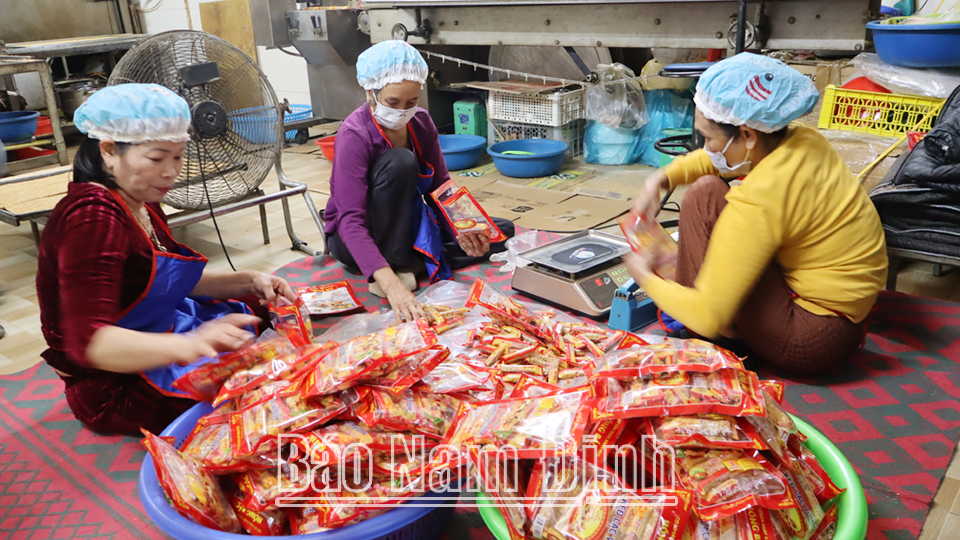

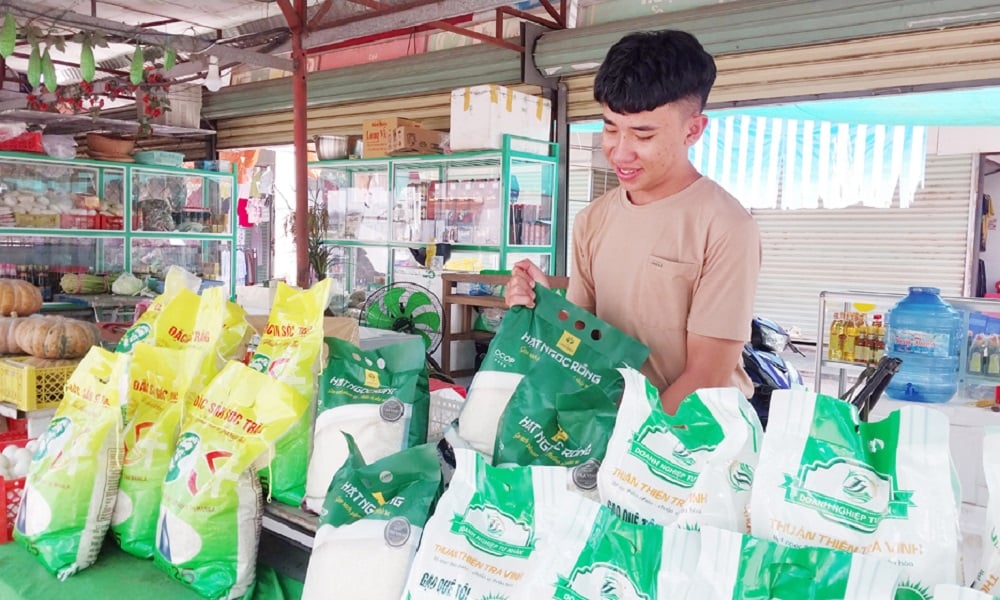



Comment (0)